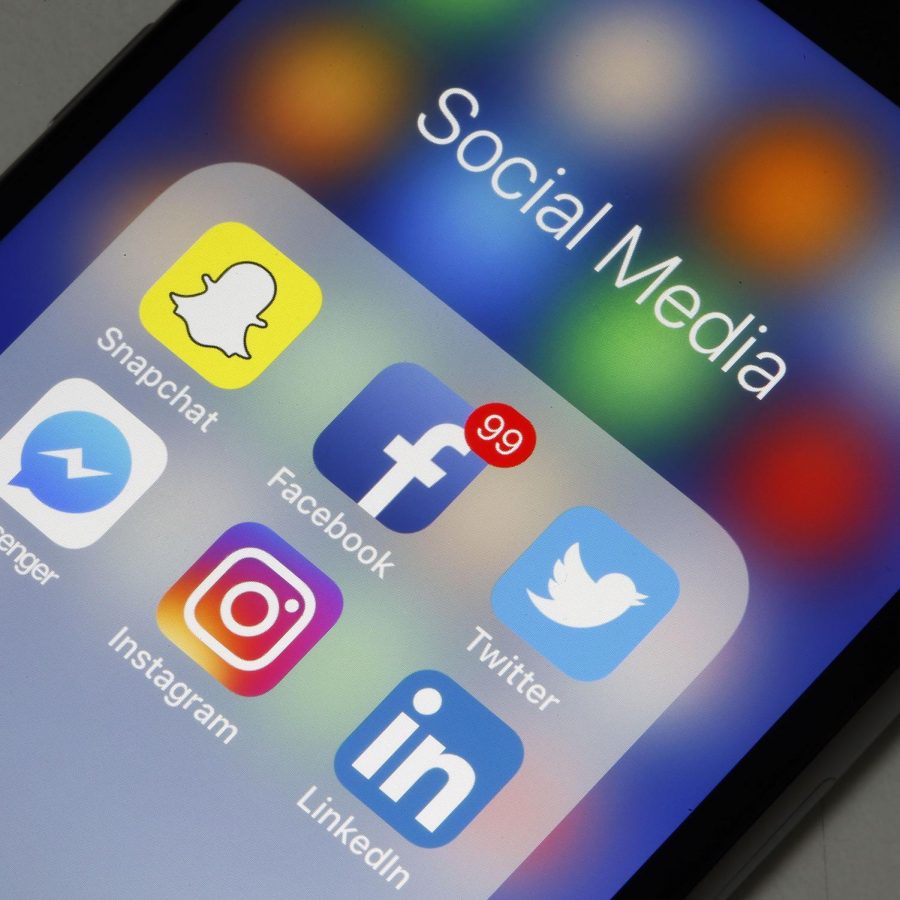The Twisted Psychology of Social Media
November 15, 2019
Social media is such a prominent part of teenagers’ lives in the 21st Century that it has altered our lives permanently, for better or worse. The early mission of social media was to make the world more unified, open, and connected, and this was initially achieved through the creation of Facebook back in 2004. Little did we know, this was only the beginning of the social media era. In these early days of social media, everyone assumed that an increase in connectivity around the world would be good for democracy. But, it hasn’t exactly aged that well…As the days go on and more problems arise around social media, optimism has faded and the list of consequences that follow the use of social media is growing rapidly: The constant comparisons of yourself and others; incorrect information spreads at an unimaginable speed; violent ideologies are introduced to young kids.
The main root of the problem might not necessarily be the newfound sense of connectivity, but rather the innate instinct within humans to turn connecting and sharing into a competition of lives. We tend to view communication as a two-way street. Intimacy between two individuals builds as jokes are made, partner’s take turns asking questions, and naturally the connection is built. But we must ask ourselves what happens when that communication takes place publicly and becomes a competition? When friends, rivals, and strangers are all involved, passing judgement and commentary on your life, what happens? Well, there’s a term created by social psychologist Mark Leary, and it’s ‘sociometer.’ Each human has one within them, and it’s the little voice in our heads that is always wondering what others are thinking of us. This sociometer in us significantly alters our need as humans for validation from others. There’s no longer a need for self-esteem, because the main goal is to get others to choose us, whether it be as friends or partners. We begin to lose sight of our selves and what we want to be. We become so engrossed in what others want from us, or at least what we think they want from us, that we forget entirely that the life we are living is ours and no one else’s. This unhealthy cycle of comparisons, living up to expectations set by people we will never see or talk to, and constantly feeling like a disappointment creates a dangerous precedent for the future generations.
But, there have been recent changes made in the social media realm that will significantly change the game for everyone from social media influencers to social media haters. Earlier this year, Instagram announced that they’d be removing “likes” from the visible view of your followers, following closely to the common app amongst teen girls, VSCO. Without likes being visible to yourself and your followers, the pressure is immediately taken off teenagers to post pictures that they think will rack up the most likes, instead of the pictures they actually wanted to share.
Many are opposed to the removal of likes on Instagram, but a study conducted by Dr. Cheryl Ziegler, a child psychologist based in Denver, has shown that in doing so, depression rates among young children will significantly decrease. Having people a little less addicted to the idea of “likes” on Instagram will seriously alter the way in which people use the app, how they interact with one another etc. Hopefully this change is one that will only bring forth positive results and foster a healthier use of social media in general.


